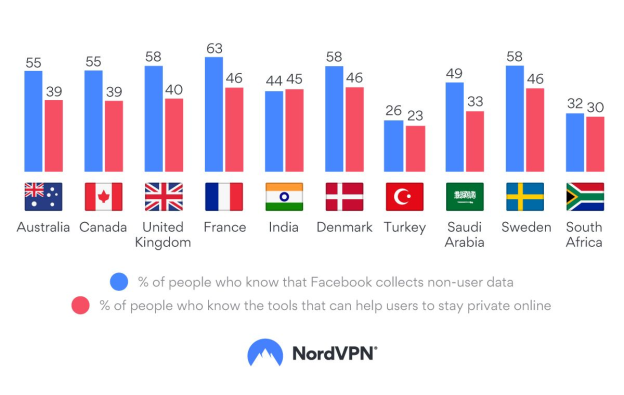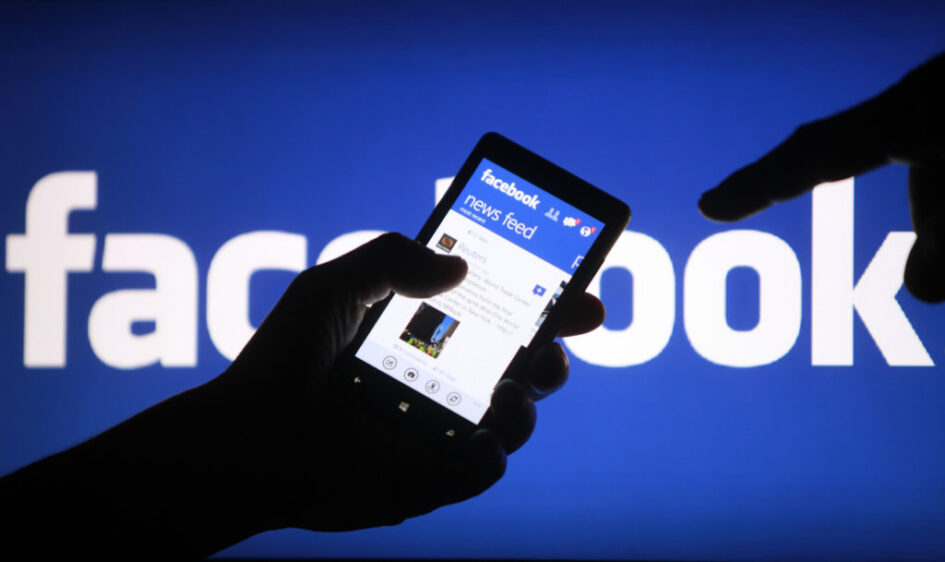TOTT News.
Australia is ranked amongst the top ten countries which have no idea how their data is collected by Facebook.
In April of 2018, Facebook’s CEO Mark Zuckerberg confirmed that the social network collects data from people online even if they don’t have a Facebook account.
Even though this might sound like old news, research by the leading virtual private network NordVPN shows that a lot of people are still unaware of this privacy issue.
To address the matter, NordVPN has listed 10 countries whose residents have the least knowledge about the kind of data Facebook collects.
Australia is one of those countries: only 55% of respondents from the country knew about the possibility of their data being collected.
“Facebook currently has over 2.85 billion monthly active users, which makes it the most popular social media platform in the world.”
“However, many people avoid using it because of the numerous data leak scandals the company had in the past. Unfortunately, even if you are not an active user or don’t even have an account, your data is probably still not as private as you would expect,” explains Daniel Markuson, a digital privacy expert from NordVPN.
COUNTRIES WITH LACK OF KNOWLEDGE
The countries whose residents took the National Privacy Test and turned out to be the least informed about the issue include:
- Australia (55%)
- Canada (55.2%)
- United Kingdom (57.7%)
- France (62.6%)
- India (43.8%)
- Denmark (57.7%)
- Turkey (26.1%)
- Saudi Arabia (48.5%)
- Sweden (57.8%)
- South Africa (31.8%).

Interestingly, residents of the same countries were the least aware of the tools that can help users to stay private online (like VPNs, proxy servers, TOR browser, etc.)
HOW FACEBOOK COLLECTS DATA
Even if you’re not using it.

Photo: AlP
Facebook can collect data from non-users in two ways: from their browsing history and their friends’ activity.
The company has officially explained only one of these options.
There are numerous sites on the internet that use Facebook’s plugins (the “Like” or “Share” buttons), logins (which help users register on certain websites using their Facebook account), and ads analytics tools (which help website owners to understand the effectiveness of their ads on Facebook).
Facebook collects data on everyone who visits websites like these, whether they’re a registered user or not.
The non-user data is less valuable to the social network, because Facebook doesn’t sell targeted ads based on that browsing history like it does if the user is registered. But Facebook can still use that information, which includes the user’s IP address, to show ads encouraging people to join Facebook.
The other way Facebook gets information about non-users is from its contact upload feature.
When people sign up for Facebook, many of them are encouraged to upload their contacts to the service so they can find other people to connect with. It’s likely, though, that some contacts in a user’s phone aren’t on Facebook — but he or she is still giving this info over to the company.
Depending on how detailed users are with their contacts, this data could include a lot more than just a phone number — it could be the name, surname, workplace, email, or even address.
To see the original article, including steps you can take to protect your privacy, go to the original TOTT News story here.
RELATED CONTENT FROM TOTT NEWS
How to stop AI recognising your face in photos
Big Brother is here, and his name is Facebook
Government wants access to Facebook messages
What Your ISP Knows and How to Stop it Tracking You
Discussion: Facebook control, digital ID


